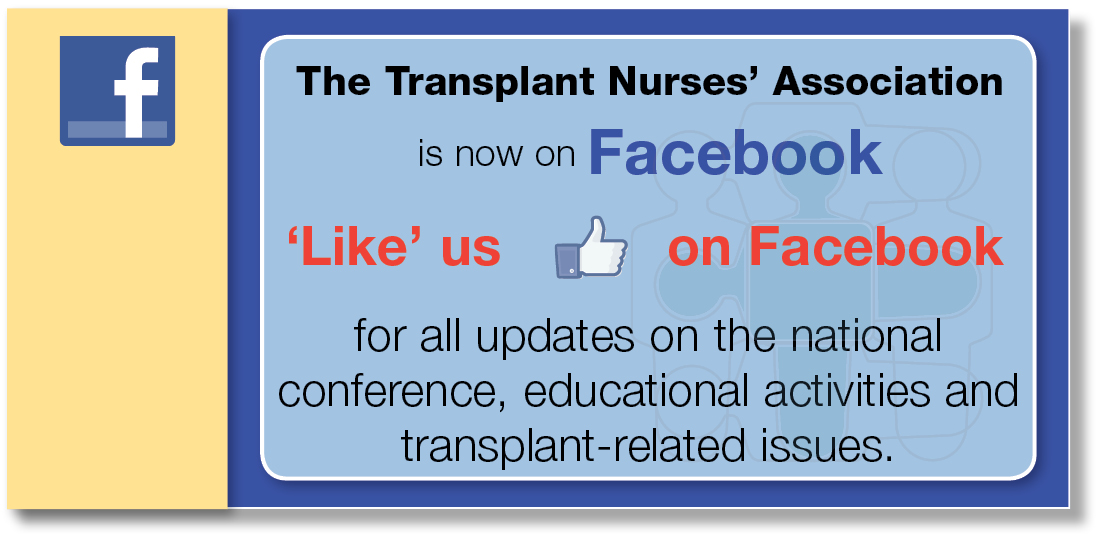Volume 28 Number 2
Nurses as change champions
Myra Serrano
For referencing Serrano M. Nurses as change champions. TJA Journal 2019; 28(2):3.
DOI https://doi.org/10.33235/tja.28.2.3

Can you believe it? We’re well and truly in the second half of the year. And what an exciting year it’s been so far, with every sector in health buzzing with activity as usual. The Queensland branch has their work cut out as they busy themselves with reviewing abstracts, engaging speakers and finalising the program for another fun-filled, thought-provoking and highly informative annual TNA conference. And all in addition to their already hectic and busy workloads. Being a TNA executive at a national or state level is hard volunteer work. With the emphasis on volunteer, over the past decade I have gained a high level of respect and admiration for our wonderful TNA executive teams who continue to advocate for transplant nurses and allied staff, and ensure our progress within the profession. I encourage you all to attend the TNA conferences as a great way to network and exchange best practices. I also encourage you to step forward in the future for the rewarding experience of being a TNA executive.
The theme of this TJA issue is: Nurses as change champions. Nurses are one of the most critical resource when managing change in practice, especially when applying a bottom-up approach. Nurses are the heart and soul, the eyes and ears, and the majority of frontline clinicians; therefore, they are best placed to drive change as clinical leaders and champions. If you read the articles and guest editorial carefully, you will identify the ability of nurses to change practice and improve outcomes. It may not be blatantly described in each of these articles; however, the underlying implication of their work points to their influence in the successful delivery of high-quality care and improved outcomes.
There are four important roles of change champions and these are: 1) Educator; 2) Advocate; 3) Relationship builder; and, 4) Navigator between professions and units1. As nurses, we embody these qualities and we apply them repeatedly and almost instinctively in our daily work. Our knowledge of our specialty is considerable if not excellent, and we are personable and capable of building intradepartmental relationships. Hence, we should not doubt our ability or hesitate to engage in practice development initiatives. With the right mentorship, evidence and a supportive team, we can lead and drive change.
Author(s)
Myra Serrano
Editor, Transplant Journal of Australasia
Email: TJAeditor@tna.asn.au
References
1. Soo S, Berta W & Baker GR. Role of champions in the implementation of patient safety practice change. Healthc Q 2009;12:123–128.




